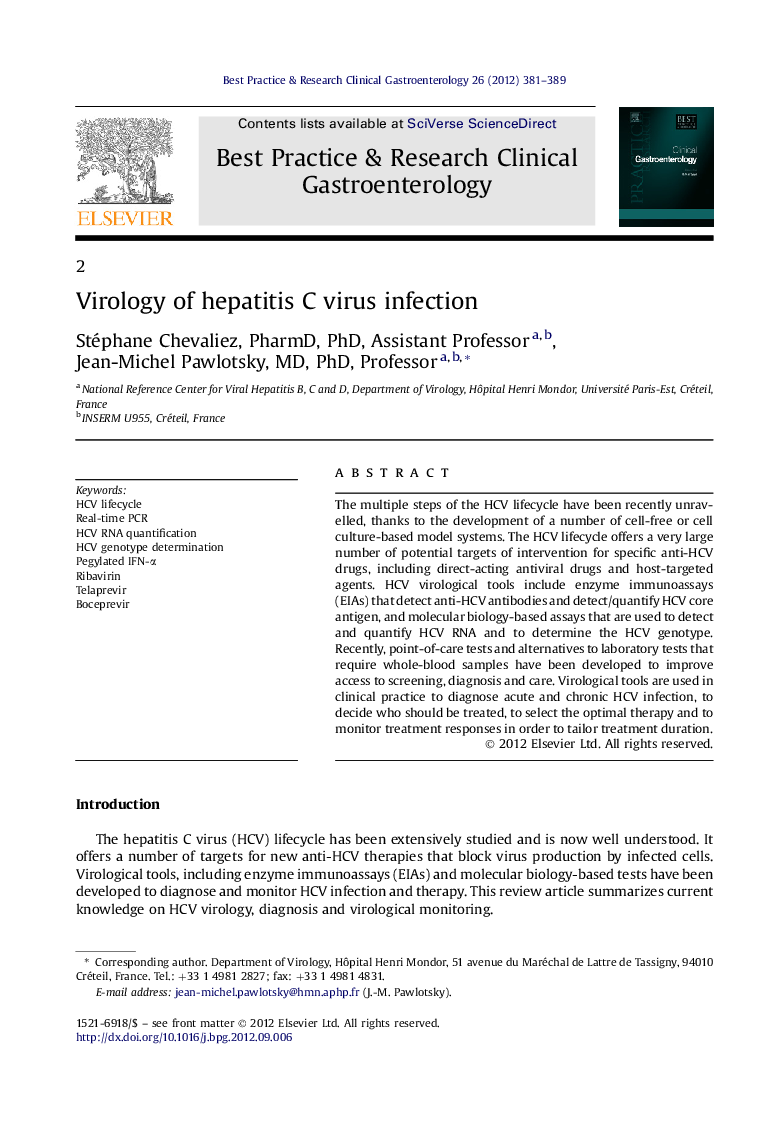| Article ID | Journal | Published Year | Pages | File Type |
|---|---|---|---|---|
| 3254191 | Best Practice & Research Clinical Gastroenterology | 2012 | 9 Pages |
The multiple steps of the HCV lifecycle have been recently unravelled, thanks to the development of a number of cell-free or cell culture-based model systems. The HCV lifecycle offers a very large number of potential targets of intervention for specific anti-HCV drugs, including direct-acting antiviral drugs and host-targeted agents. HCV virological tools include enzyme immunoassays (EIAs) that detect anti-HCV antibodies and detect/quantify HCV core antigen, and molecular biology-based assays that are used to detect and quantify HCV RNA and to determine the HCV genotype. Recently, point-of-care tests and alternatives to laboratory tests that require whole-blood samples have been developed to improve access to screening, diagnosis and care. Virological tools are used in clinical practice to diagnose acute and chronic HCV infection, to decide who should be treated, to select the optimal therapy and to monitor treatment responses in order to tailor treatment duration.
